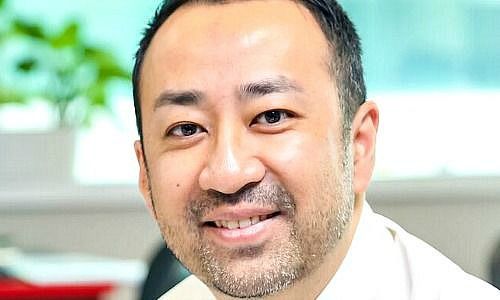Singapore-based fintech AGDelta beat over 300 global submissions to win at the MAS Fintech Awards, finews.asia met with Andrew Au, the firms CEO and co-founder.
Andrew Au, you talk about the need for the digitisation of Asian finance, how do you see this happening?
ASEAN is made up of ten different countries, each with their own rules and regulations when it comes to finance. This makes financial investments costlier, as regulatory and compliance burdens are higher. There is also more risk, especially with Anti-Money Laundering and Counter Terrorist Financing rules that are in place.
Why?
More and more Asian’s live and work in multiple jurisdictions, and there is growing demand for more cross-border investments and transactions, yet recent trends point to higher costs and more risk, leaving wealth management for the ultra-rich only.
Digitisation – through the provision of digital wealth solutions – can address this, by making the provision of financial services and investments more efficient, smoother and safer. For example, Client Advisors need to be wary of the combination of local market regulations, where the investment products are sourced and booked, in addition to the customer’s investment profile, residential status and tax domiciles.
How can Singapore consolidate its position as a regional financial hub?
Singapore is currently the leading financial services hub in Southeast Asia, and it reached this through a variety of factors, including intelligent regulations and a responsible, forward-thinking regulator. There are some steps that the Monetary Authority of Singapore (MAS) can take that would put the City-State in a good place to retain its position as a leading financial hub.
Firstly, the channels of delivering financial advice are changing, with the growth of digital solutions and the growing sophistication of Artificial Intelligence (AI). Globally, there are approximately 2,148 robo-advisers with $140 billion in assets, up from just 51 with $2 billion in 2013, according to Aite Group. Assets are estimated to double to $285 billion by the end of 2017.
«More regulatory clarity will help to foster more innovation and growth»
In Singapore, digital advisers are currently regulated under the Securities and Futures Act, and/or under the Financial Advisers Act. Following a recent consultation, the Monetary Authority of Singapore (MAS) has proposed a set of measures that make it easier for digital advisory services to operate in Singapore through refinements to licensing and business conduct requirements. More regulatory clarity will help to foster more innovation and growth in this part of the finance industry, and position Singapore as a digital advisory centre.
Another area is in pseudo assets.
Yes, and Singapore is already moving ahead of its peers when it comes to crypto-currencies, potentially turning it into a «Crypto-Hub». MAS has recently published guidance that clarifies the local regulatory situation regarding digital token sales, otherwise known as Initial Coin Offerings (ICOs).
Worldwide, over $1 billion is said to have been raised through token sales for issuing companies as of last month, and some Singapore-based businesses that have run token sales include gold price tracker Digix, which raised $5.5 million, and ewallet provider TenX, which raised $80 million in less than seven minutes.
«MAS is preparing Singapore for further growth in this sector»
At the moment, issuers are not required to secure a green light from MAS before initiating an ICO, however, MAS has now declared that some coins may represent ownership or a security interest over an issuer’s assets or property, bringing them under the purview of Singapore’s Securities & Futures Act and Financial Advisers Act.
By creating regulatory clarity around ICOs, MAS is preparing Singapore for further growth in this sector, potentially positioning the City-State as a future ‘Crypto-Hub’, and potentially increasing the security around ICOs, further improving trust.
What role, if any, will companies like yours play in this?
- Page 1 of 2
- Next >>





















